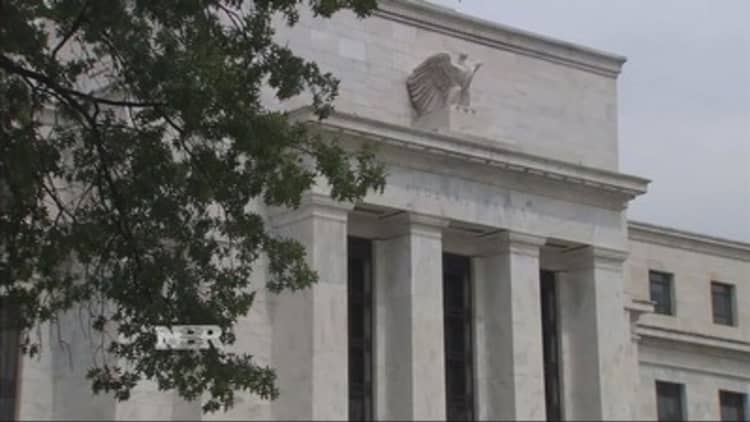Minutes of the Federal Reserve's regular meetings have become so detailed and such a central focus for investors and the news media that the quality of policy debates may be suffering as a result, a top Fed official said on Thursday.
The Fed publishes minutes of its policy-setting meetings three weeks after the fact. While the minutes do not specify what individual policymakers said, they do describe whether views were expressed by "some" or "a few" or "many" members. Traders often use those characterizations to try and determine where monetary policy may be heading.
"If I don't say first quarter growth was weak, it might say in the minutes, A 'few' members thought first quarter growth was weak, and what were the rest of us thinking, that it was strong?" John Williams, president of the San Francisco Fed, asked rhetorically at a conference held at Stanford University's Hoover Institution. "We are getting ourselves into a transparency that is actually stopping us from having conversations."

Minutes from the Fed's April policy-setting meeting were released on Wednesday. Traders focused on the fact that "many" participants thought that data was unlikely to be strong enough by the Fed's next policy meeting, in June, for the Fed to raise rates.
"Everyone...is fixated about how many people said, 'The sun rises in the East,'" Williams said.
Williams' remarks came in the context of a broader discussion over whether more public information about the Fed's decision-making boosts accountability, or muddles the process.
Kevin Warsh, a former Fed governor and an adviser to former Florida Governor Jeb Bush, who is exploring a 2016 presidential bid, suggested the latter. The fact that the Fed publishes transcripts of its meetings five years after the event, he said, keeps policymakers from engaging in true debates at their meetings.
Read MoreFed sees weakness as 'transitory,' all but rules out June hike:Minutes
Instead, he said, policymakers make prepared remarks, and then read on their BlackBerries while their colleagues talk. If Fed officials want to know what their colleagues really think, he said, they will ask them in the coffee break. The transcripts, Warsh said, "haven't improved transparency, we've hidden it."
Charles Plosser, who stepped down as head of the Philadelphia Fed in March, argued that policymakers do debate the issues, but they do so over the course of several meetings. The problem, he said, is that Fed policymakers are so focused on getting consensus that their post-meeting statements are vacuous, vague and hard to interpret, "something that no one is happy with."

